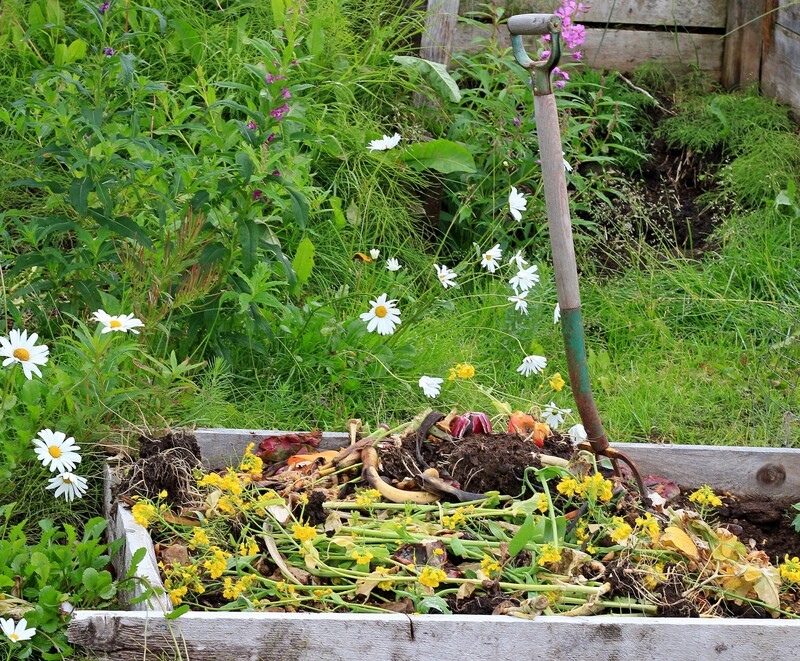How to Make Bulky Waste Removal Work for Your Wallet
Bulky waste removal is often unavoidable, whether you're renovating, decluttering, or simply making space for new furniture. However, large item disposal can seem overwhelming--not just physically, but also when you consider your budget. This comprehensive guide will show you how to make bulky waste removal work for your wallet, offering proven strategies and helpful tips to keep costs manageable while responsibly dealing with big, unwanted items.
Understanding Bulky Waste Removal
Bulky waste, also known as bulky junk or large item waste, refers to items that are too big or heavy for regular garbage collection. This often includes:
- Old sofas and mattresses
- Broken appliances (fridges, ovens, washers)
- Furniture (dressers, tables, armchairs)
- Garden debris (branches, old fences, sheds)
- Electronic waste (TVs, computers, printers)
- Carpets, flooring, and large rugs
Disposing of such items responsibly and affordably is critical. Improper disposal may result in fines or environmental harm, so learning cost-effective bulky waste disposal methods is essential for every homeowner or tenant.

Why Bulky Waste Is Expensive to Remove
Before we delve into saving strategies, it helps to understand the factors influencing the cost of large item removal:
- Size and volume: Bigger, heavier items require more effort and space in a truck.
- Location: Remote or hard-to-access properties cost more in haulage fees.
- Type of materials: Disposal of some items, such as electronics or mattresses, involves special recycling or landfill fees.
- Labour: Moving large items may require multiple people or equipment, increasing labor charges.
- Regulations and permits: Some states or regions require specific permits for certain types of waste.
The good news is, with the right knowledge, you can avoid unnecessary expenses and even find free bulky waste disposal options in many cases.
Tips to Save Money on Bulky Waste Removal
1. Plan Ahead and Reduce
The first rule of affordable large item removal is planning. If you know you're going to be disposing of appliances, old furniture, or other bulky materials:
- Try to consolidate your bulky waste so it's dealt with in a single trip.
- Schedule removal during community or municipal collection events (Bulk Pickup Day).
- Avoid last-minute clear-outs, which often cost more due to urgency or rush service charges.
2. Donate or Sell Usable Items
Before calling a removal company, ask yourself: Can someone else use it? Many organizations accept gently used furniture or appliances, and some will even pick up your items for free. Consider:
- Local charities (e.g., Goodwill, Salvation Army, Habitat for Humanity ReStore)
- Online marketplaces (Facebook Marketplace, Craigslist, Nextdoor)
- Freecycle networks for giving away items in your neighborhood
- Hosting a garage sale for extra cash
3. Use Your Regular Waste Services
Many municipalities provide occasional free large item collection as part of your regular waste removal service. You might be allowed:
- One or two "bulky waste" items per month
- Annual or semi-annual curbside pickup events for large waste
- Reduced-fee or free drop-off days at your local landfill or transfer station
Check your city or county website for details about these services. Scheduling your cleanout around these dates could save significant money.
4. Compare Bulky Waste Removal Companies
If you need to hire a professional big item disposal service, don't settle for the first quote. To make removal work for your wallet:
- Request quotes from several trusted companies in your area
- Review their fee structures--do they charge by weight, by volume, or by item?
- Ask if they have discounts for seniors, veterans, or ongoing customers
- Read reviews on Google and verify licensing and insurance
- Bundle items for pickup--sometimes adding more items reduces the per-item price
5. DIY Bulky Waste Removal: Pros and Cons
If you have access to a pickup truck or truck rental, removing bulky waste yourself is a popular, wallet-friendly solution. Consider:
- Transporting items to local recycling centers or landfills may only cost a nominal fee (or may be free for residents)
- Many municipal dumps offer lower rates than private haulers
- You maintain control over how items are sorted and disposed
However, DIY removal comes with risks:
- Injury when lifting or carrying heavy items
- Potential for incurring fees if you dispose of restricted materials
- Time and effort spent loading, hauling, and unloading
6. Rent a Dumpster for Large Jobs
If you're tackling a major project (like a home renovation or estate clean-out), renting a dumpster can be highly economical. Here's why:
- You pay a flat fee for a fixed period (e.g., one week) and size (measured in cubic yards)
- You load the dumpster at your own pace
- Many companies offer flexible pickup and drop-off schedules
- Perfect for mixed waste: construction debris, furniture, yard waste, etc.
Tip: Share a dumpster with neighbors to split the cost for even greater savings!
7. Utilize E-Waste and Appliance Recycling Programs
Some electronics and appliances are illegal to landfill in certain areas. Specialized recycling programs often provide free or discounted disposal:
- Retailers like Best Buy and Home Depot accept used electronics and appliances
- Local utilities or city programs frequently sponsor "e-waste" days
- Manufacturers may offer take-back programs during appliance upgrades
8. Safely Dispose of Hazardous Bulky Waste
Not all bulky waste is created equal. Hazardous items (such as old refrigerators containing coolants, paint cans, or batteries) require safe, regulated disposal and may have added costs.
- Contact your local recycling authority for guidance
- Never attempt to "hide" hazardous waste in regular trash--this is both illegal and dangerous
- Ask about "household hazardous waste collection events" for safe, sometimes free, disposal
Hidden Costs to Avoid
Learning how to make bulky waste removal work for your wallet also means understanding the fees and pitfalls to avoid:
- Extra labor charges: Some companies charge if items aren't ready at curbside or need to be hauled from inside your house
- Weight overages: Landfill fees (especially for construction debris and concrete) often increase when you exceed weight limits
- Add-on disposal fees: Mattresses, electronics, and tires often incur surcharges
- Permit requirements: Some cities require permits for dumpsters or curbside bulk pickup--check local laws to prevent fines
Smart tip:
Always get a clear contract in writing, specifying exactly what is included and what triggers extra fees!
Eco-Friendly Bulk Waste Removal: Save Money & The Planet
Affordable bulky waste disposal doesn't mean sending everything to the dump. You can save money and reduce your environmental impact by:
- Separating materials for recycling (metal, wood, electronics)
- Contacting local artists or upcycling communities--old windows, doors, or wood beams may be valuable for creative reuse
- Donating non-profit building material reuse centers
- Hiring eco-friendly junk removal firms who ensure responsible disposal and recycling
Reducing Bulky Waste Generation: Prevention Pays Off
The cheapest bulky waste is the kind you never generate! Adopt these prevention strategies:
- Buy quality items that last longer and won't need frequent disposal
- Repair and refurbish furniture and appliances before replacing them
- Choose modular or multi-purpose furniture that's easier to upgrade
- Participate in local "swap" or "repair cafe" events
Checklist: Making Bulky Waste Removal Work for Your Budget
- Start early: Don't wait until the last minute--research free/low-cost options
- Sort and stage: Organize items, separating reusable from true trash
- Call your city: Inquire about municipal pick-up, hazardous waste rules, and local requirements
- List items for sale or donation: Try to offset disposal costs
- Get multiple quotes: Compare service providers!
- Read the fine print: Watch for surcharges or extra labor fees
- Recycle responsibly: Use e-waste and appliance drop-offs where possible
- Team up with neighbors: Share removal costs and reduce empty runs

FAQs: Affordable Bulky Waste Removal
What is the cheapest way to dispose of large waste?
The cheapest method is usually using your municipality's free bulk pickup, dropping items off at a local landfill or recycling center yourself, or finding a recycler or charity who will collect items for free.
How can I avoid bulky waste fines?
Always confirm local rules before placing bulk waste at the curb. Separate hazardous or restricted items, and ensure pickups are properly scheduled.
Are there free options for large item removal?
Yes! Many cities offer free bulky waste collection on set days. Charities may also collect furniture and appliances in good condition at no cost.
Should I hire a junk removal company?
Hiring professionals is the fastest solution, especially for heavy or multiple items, but compare prices, check for hidden fees, and consider if you can donate or self-haul instead.
How can I lower the cost of hiring a hauling service?
Bundle items for one pickup, compare quotes, have everything staged and ready, and ask about discounts or promotions.
Making Affordable Bulky Waste Removal a Reality
Making bulky waste removal work for your wallet is all about preparation, research, and resourcefulness. Whether you list usable items for free, take advantage of municipal services, or choose a budget hauler, implement these strategies and you'll save money and avoid hassle. Remember: It's possible to keep costs low and protect the environment at the same time--all with smart, sustainable decisions that benefit your home, your neighborhood, and your budget.
Make your next clear-out affordable, eco-friendly, and easy--your wallet will thank you!